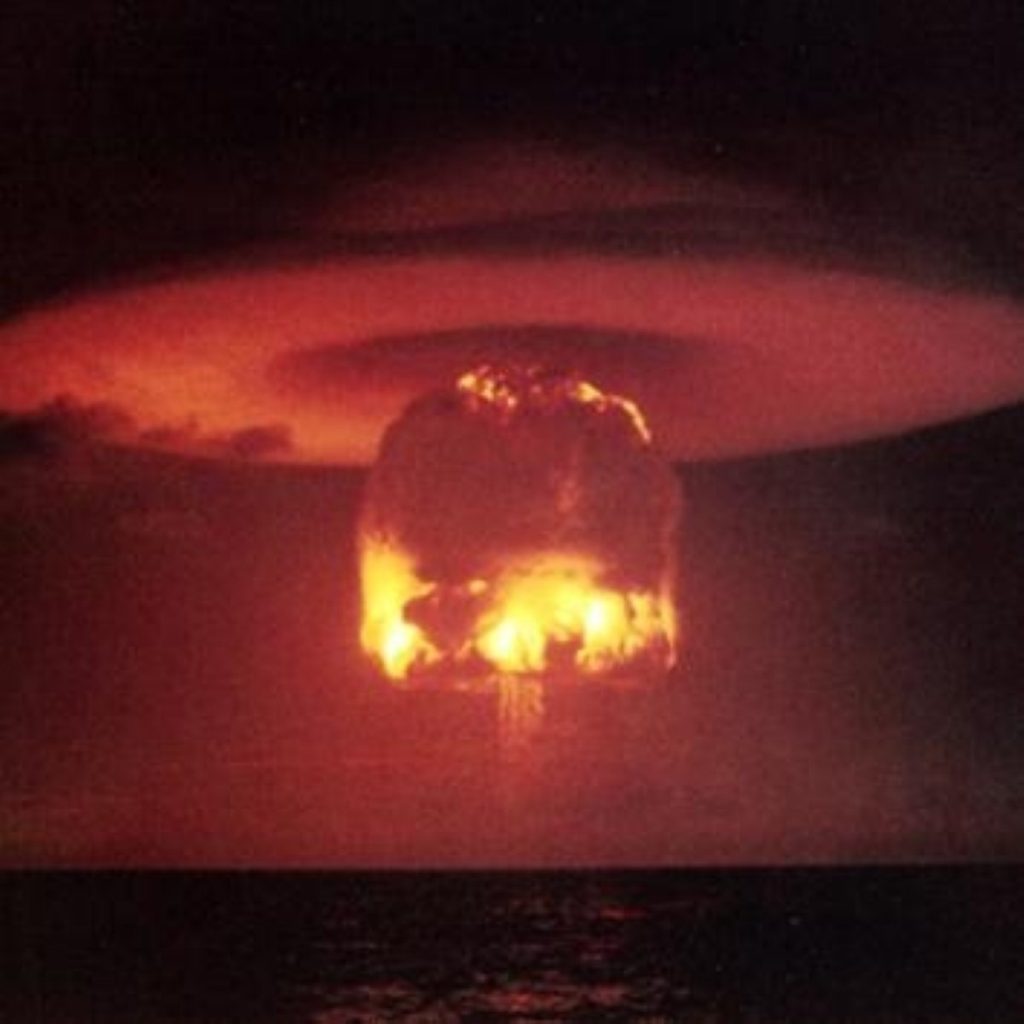Comment: Trident is a child’s security blanket
By Jessica Metheringham
Nuclear deterrents make the world more dangerous and no one safer. If the UK is in the position where it has to use these weapons then the deterrent has failed.
Yet according to a cross-party Trident Commission, which has published its final report today, there is no credible alternative to Trident.
Quakers in Britain, along with many others, oppose nuclear weapons in general and the UK's nuclear missiles mounted on Trident submarines in particular. It is clear from the Trident Commission's report that insufficient time was spent considering alternatives to nuclear weapons.


The recommendation of the Commission, set up by British American Security Information Council (BASIC), is that the UK retain nuclear weapons as a deterrent against threats from hostile nuclear-armed states. It also argues that keeping nuclear weapons works as a contribution to Nato and raises the possibility of the UK combining its nuclear deterrent with that of France.
The moral arguments against this are obvious. These are weapons of mass destruction, vehicles of death, killing machines designed to wreak the maximum amount of havoc. There is a moral imperative to speak out loudly and clearly against the possession, use and development of such weapons. Genuine security comes from recognition of the inherent worth of every person in a society free from the threat of violence.
The pragmatic arguments are similarly unambiguous. Nuclear weapons are an ineffective deterrent against both potential acts of terrorism and threats from nuclear states. In a global economy with ever-increasing links between nation states war is not inevitable. Renewing the nuclear deterrent reinforces mistrust between nations and maintains the cycle of conflict. Despite political rhetoric, the lesson of history is that indiscriminate killing never has a positive outcome.
What sort of attack are our nuclear missiles supposed to protect us against? If the threat is terrorists, how can these weapons help us retaliate against an enemy which moves from country to country, hides among civilians and uses technology to outsmart us? If the threat is other nation states, the media and diplomacy are far more effective deterrents than such weapons can ever be.
What prevents countries from attacking one another is communication and mutual interest. Nation states don't attack other states they trade with, or where they have close cultural ties. Building those links builds our national security. Furthermore, diplomacy and trade benefits the economy in a way that Trident cannot. In the face of cuts to the NHS, to education, to welfare, it is madness to spend money on a set of weapons which we all hope we would never need to use.
Politicians hang on to the notion of big weapons because they offer comfort. Trident is a child's security blanket and the protection it offers is psychological. As a nation, we should act like adults and take responsibility for our national security through open and honest diplomacy. We may feel naked and vulnerable, but the truth is that we'll be safer than we were before.
Trident is a dinosaur, a relic of the Cold War. This morning on BBC Radio 4 Menzies Campbell MP, one of the members of Basic's Trident Commission, argued that the UK's nuclear deterrent stopped Saddam Hussein from using biological and chemical weapons during the Gulf War. Politics, in which a week is a long time, has moved on from the bravado and posturing of the second half of the 20th century. Quakers believed that nuclear weapons were wrong then and we hold to that belief now.
By choosing not to replace Trident, the UK could play a leading role in furthering nuclear disarmament worldwide. A state retaining nuclear weapons compromises its ability to negotiate for the elimination of nuclear weapons under the Treaty of Non-Proliferation of Nuclear Weapons (NPT). The UK must live up to its international legal and moral obligations, especially when the majority of nation states have renounced the development of their own nuclear weapons.
The decision on whether to start constructing the new replacement Trident submarines is expected to be made in 2016 – although another recommendation of Basic's Trident Commission was that this decision should be delayed another two years. With a general election next May and the Scottish referendum in September, this should be a key topic of debate. And yet political parties are reluctant to engage. The Liberal Democrats oppose a like-for-like replacement of Trident, the SNP is committed to a Scotland free of nuclear weapons, Plaid Cymru and the Green party call for Trident to be scrapped, the Conservatives and Ukip support retaining Trident, while Labour appears to have no explicit policy.
That the Trident Commission has opened up the debate around Trident is positive: that it has concluded that there is no alternative is not. The true alternative is recognising that in the 21st century Trident is simply not necessary.
Jessica Metheringham is the parliamentary engagement officer at Quakers In Britain
The opinions in politics.co.uk's Comment and Analysis section are those of the author and are no reflection of the views of the website or its owners.









